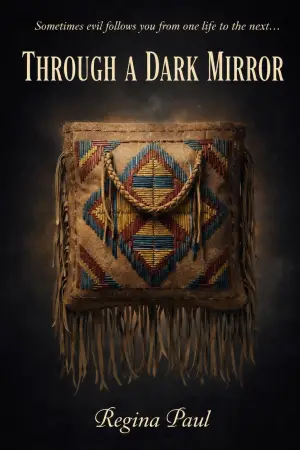Having recently immersed myself in The Darkest Nights Saga, which includes Volumes Four, Five, and Six, complemented by a sneak peek of Volume Seven, Dawn of Phantasia, I found myself captivated once again by the complexities of Ludwig’s journey. As an avid reader of dark fantasy and steampunk fiction, I was drawn to this collection not only for its intriguing narrative but also for its promise of an epic culmination of previous volumes.
The sheer length of this tome, comprising 193 pages, felt like both a benefit and a drawback. On one hand, the depth it provided allowed for intricate character development and a richly layered plot. The author’s ability to weave various threads into a cohesive narrative was impressive; I found myself eagerly turning pages, eager to uncover what awaited Ludwig as he faced challenges and revelations. However, some of the pacing led to moments of stagnation, where I felt certain plot lines could have been resolved more efficiently. The result was a tug-of-war between being deeply engrossed and occasionally feeling bogged down by repetitiveness.
Another positive aspect of this saga is the world-building. The unique blend of steampunk elements intertwined with dark fantasy creates an unsettling yet fascinating atmosphere that I thoroughly enjoyed. The vivid descriptions of the settings allowed me to visualize the world vividly; I could practically feel the steam and shadows in each bustling scene. However, while the complexity of the universe is a significant draw, it sometimes left me wishing for more clarification on specific lore, especially when new characters were introduced. This inconsistency in clarity made for some frustrating moments where I felt adrift in the extensive backstories.
Delving into the plot, I particularly appreciated the emotional stakes involved. Ludwig’s evolution throughout the saga is profound, reflecting themes of sacrifice, loss, and redemption. By the time I reached the end of Volume Six, I found myself invested in his fate, feeling both anxious and excited for the hinted challenges of Dawn of Phantasia. This narrative quality aligns perfectly with the official book description that emphasizes Ludwig’s journey, and it’s safe to say I was kept on the edge of my seat.
Despite the minor setbacks regarding pacing and clarity, my overall experience with The Darkest Nights Saga was engaging. It offers a gripping narrative aimed at a teen audience aged 16-18, but don’t let that fool you; the themes and emotional undercurrents resonate with adult readers as well. The reader’s accessibility features, such as enhanced typesetting and Word Wise support, are also commendable; I appreciated these inclusions as they made my reading experience smoother.
In conclusion, I would rate The Darkest Nights Saga a solid four stars. If you’re a fan of engaging stories filled with rich world-building and emotionally charged characters, you’ll find a treasure trove in these pages. While it does have some pacing issues and occasional loss of clarity, the journey of Ludwig and his encounters are an adventure worth taking. I wholeheartedly recommend picking up this collection, especially with the prospect of a riveting conclusion just around the corner in Volume Seven.








